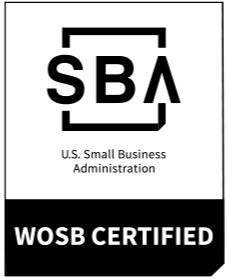Culture by Design: The Power of Intentional Culture for Competitive Advantage
Culture is a reflection of leadership, not a byproduct of business operations. The values, behaviors, and systems you embed in your organization become the cornerstone of your operations.
When crafted intentionally, your company’s culture becomes a strategic asset, driving growth and aligning your team on common objectives. On the other hand, allowing culture to evolve passively, whether out of neglect or lack of inertia, can lead to misalignment, inefficiency, or toxicity. Deliberately designing your company’s culture at the outset lays the groundwork for innovation, employee engagement, and a long-term competitive edge.
The Strategic Advantage of Intentional Culture
A culture aligned with strategic goals becomes more than a guiding force—it becomes an engine of performance. A well-designed culture clearly communicates expectations and values, ensures every employee understands their role in advancing the company’s mission, fuels collaboration, and fosters ownership and innovation.
Take Spotify, for example. The company’s culture is built around employee autonomy and trust, empowering teams to make decisions, take risks, and learn from failure. This test-and-learn model, supported by data-driven decision-making, enables Spotify to stay agile, adaptable, and innovative, outpacing its competitors in a changing market.
Similarly, Patagonia built a culture rooted in sustainability and social responsibility. By aligning its culture with environmental stewardship, Patagonia attracts employees and customers who share those values, fostering loyalty and engagement beyond its products’ quality. Patagonia’s culture contributes to talent retention and sustains strong customer relationships—competitive advantages that are difficult for competitors to replicate.
When Culture Falters
Cultures that aren’t actively shaped can quickly devolve into chaos, as evidenced by WeWork’s rapid rise and dramatic fall. The company initially thrived on a fast-paced, dynamic culture that attracted top talent and rapid investment. However, leadership failed to anchor the culture in sustainable values as WeWork grew. Instead, the company relied on a charismatic vision that lacked substance, resulting in instability and internal fragmentation.
Successful Culture in Practice
When the Washington Post recognizes a company as a top workplace for the eighth time, it’s clear they’re doing something extraordinary. REI Systems, one of our valued partners, exemplifies what it means to build an intentional and purpose-driven culture. Guided by their SPARK values—Service, Passion, Attitude, Readiness, and Keeping Promises—they’ve cultivated a workplace that fosters collaboration, trust, and innovation.
We’ve witnessed firsthand how REI’s culture drives their internal success and elevates their partnerships. Patrick Hahm, a leader at REI Systems, reflects on their cultural philosophy:
“Our growth is built on the values that define us: service, passion, readiness, and integrity. These principles unite our team, fostering a supportive, collaborative, and innovative workplace.”
Through open communication, professional development, and a strong emphasis on work-life balance, REI Systems creates a highly satisfied and adaptable workforce. Employees are informed and empowered to contribute directly to the company’s ability to maintain a competitive edge and form impactful partnerships.
Patrick Hahm emphasizes, “Our leaders reinforce our culture through open communication, mentorship, and engagement, ensuring REI remains value-driven and connected as we grow.”
Their success is no accident—it’s the result of deliberate choices and ongoing commitment. REI Systems shows that designing a strong culture is not just an internal priority but a strategic advantage that extends to their work with clients and partners.
Shaping the Culture You Want
Designing an effective culture is about creating actionable steps that incorporate your values into every facet of the business. Here’s how leaders can intentionally shape a successful culture:
- Assess the Current Culture: Start by understanding where your culture is today. Identify what is working well, what isn’t working, and which elements may not support your business goals.
- Define the Desired Culture: Clarify the values, behaviors, and norms that should guide your organization. Be specific about those elements, don’t use broad terms. The culture you design should directly reflect your strategic objectives.
- Embed Cultural Values: Once you define your values, actively integrate them into every aspect of the organization, from recruitment to performance management and daily interactions. Culture should not live in the abstract; it should be seen and felt in everything you do.
- Lead by Example: As a leader, you must embody the values you want to see reflected in your team. If transparency is important, evaluate whether you have the vehicles and behaviors in place to support it. Leaders set the tone for the organization, and your actions will either reinforce or undermine your established values.
The Critical Role of Leadership
Intentional leadership is at the heart of a thriving culture. As a leader, your role is to guide your teams toward short-term goals and create an environment that fosters innovation, engagement, and long-term success. Employees look to leaders for confirmation that the company’s values are lived, not just spoken. Leaders must be visible, decisive, and consistent in promoting the cultural values that drive the organization forward.
Patrick Hahm highlights the importance of leadership at REI Systems:
“Our commitment to people is key to our success. Leaders play a critical role in fostering transparency, mentorship, and collaboration, ensuring our values remain strong as we grow.”
This approach extends to REI’s partnerships. Hahm notes,
“We prioritize partnerships with organizations that share our core values, like Emerald One, where we’ve found strong alignment in focus and quality.”
Leadership is active. Shaping culture means holding yourself accountable for aligning your organization’s values, behaviors, and strategic. However, even the most capable leaders benefit from external guidance in navigating this complex landscape. Emerald One partners with you to design, refine, and implement a culture that supports your business goals. Whether through leadership coaching, strategic communication, or organizational transformation services, Emerald One helps you align your actions with your desired culture.
In navigating this journey, you’re shaping more than just the present culture—you’re defining your company’s future.
Your culture is your legacy. Craft it wisely.
About Emerald One
Emerald One, LLC is a 100% woman-owned small business focused on closing the gap between strategy and execution and specializes in digital transformation, resource value maximization, new asset alignment, and executive coaching and communication.







